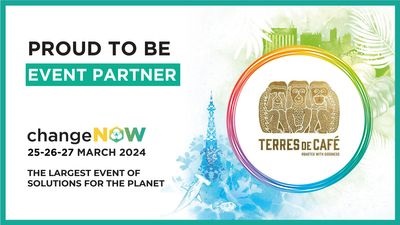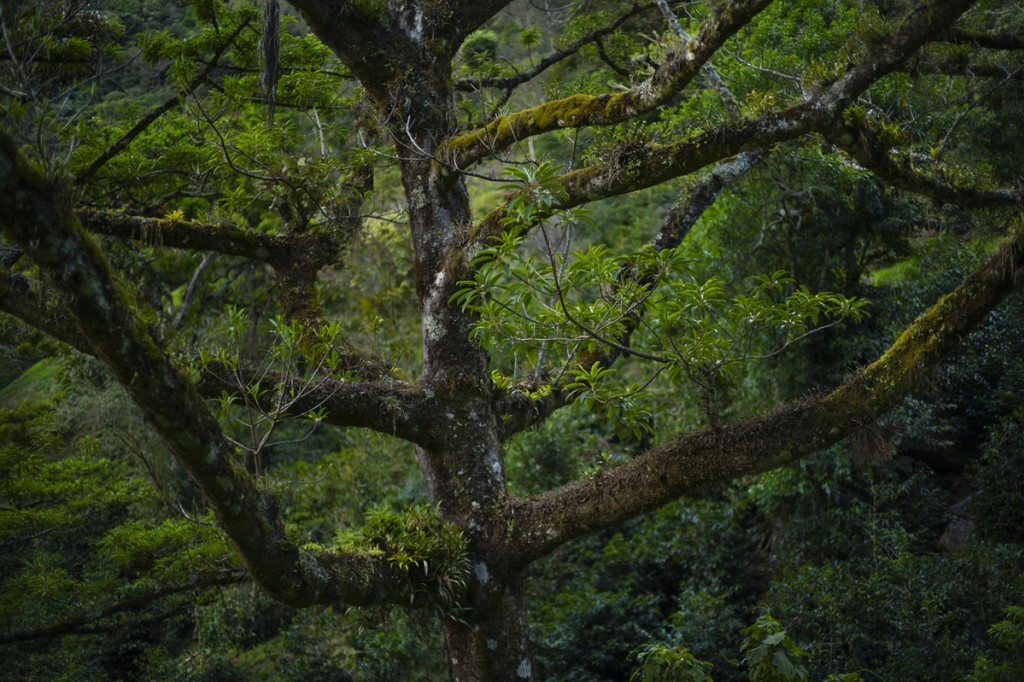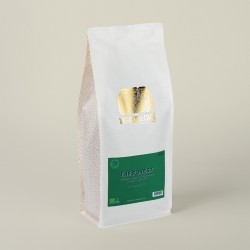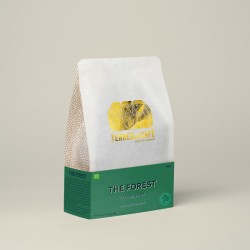In 2020, ChangeNOW chose us to be its coffee partner. We will be offering the 35,000 participants our THE FOREST coffee, a blend of forest coffees from Ethiopia that combines the components required for sustainable agriculture, namely a short and transparent supply chain, a high purchase price that rewards quality, an organic and speciality coffee, a forest coffee and finally a carbon-neutral roasting. For every kilo purchased, €1 is donated to our Fund, which was set up in 2020 to support environmental and social projects and optimise quality in the speciality coffee sector.
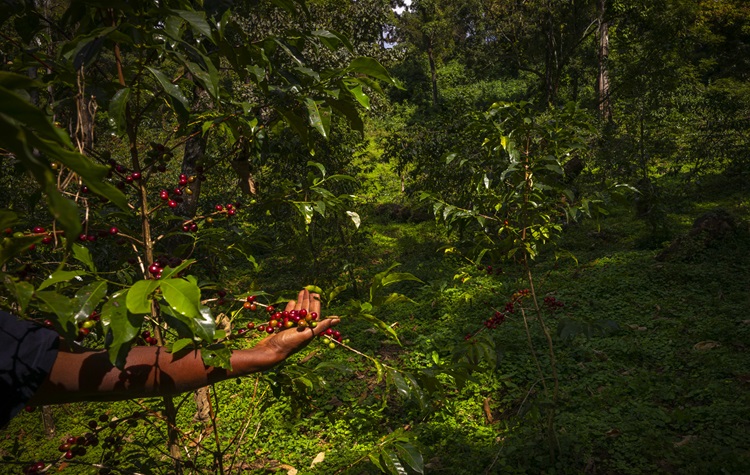
Coffee cherries and forest / Photo : Fabrice Leseigneur
And this year, in partnership with the De'Longhi Group, we will be unveiling our LESS & BETTER exhibition on the speciality coffee sector, which is developing in the opposite direction to the conventional sector.
Speciality coffee brings producers and consumers together through new roasters, who are at the heart of this equation. This short circuit economy puts the terroir at the heart of the industry and everyone's concerns.
A journey "back to the origin" to discover these "new coffee growers" who are no longer subject to the domination of lobbies and globalised roasters.
Join us on 25, 26 and 27 March to discover LESS & BETTER at the Grand Palais Ephémère in Paris.
1. LESS & BETTER COFFEE EXHIBITION
Photographs by Fabrice Leseigneur. Texts by Christophe Servell.
With global warming, labour shortages, impoverished soils, degraded biospheres, a high average age of growers and too little pay, the conventional coffee industry is in crisis.
Another sector, which is growing steadily, is doing very well: speciality coffee. It is based on quality and higher purchase prices, which help to make coffee farms more sustainable, regenerate them and preserve the forests.
This photographic exhibition takes us on a journey 'back to the origin' to discover these 'new coffee growers' who are no longer subject to the domination of lobbies and globalised roasters.
And what if this new industry, which is breaking down and reversing the rules of a traditional sector that has run out of steam, were to inspire a trend towards a wider dietary transition?
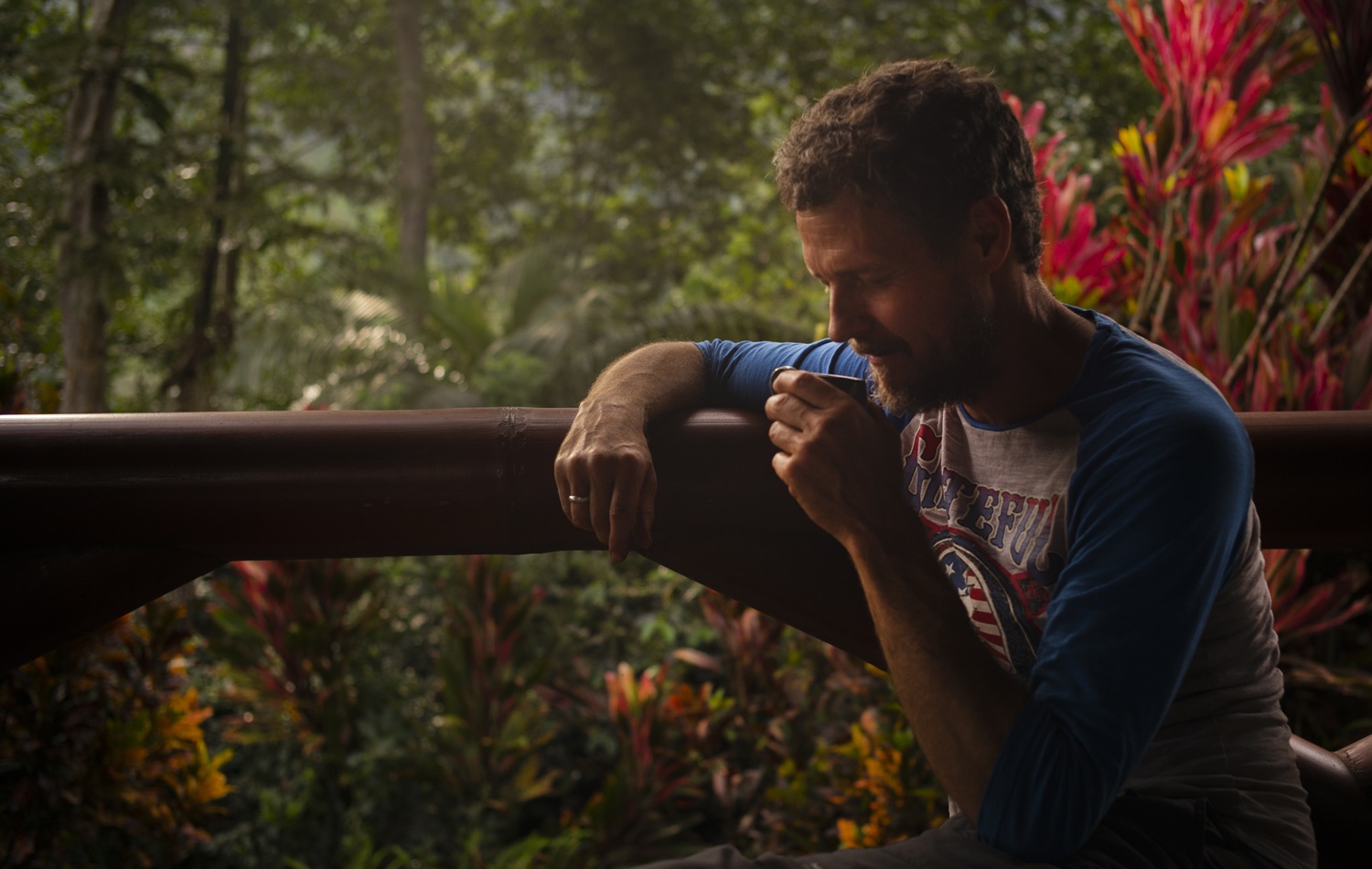
Pepe Jijon, producer of Finca Soledad / Photo : Fabrice Leseigneur
2. THE SUDUS PROJECT
Sudus is a Colombian association that supports 20 farms - selected for the project - in their agricultural transition: from a conventional, unshaded and intensive model to mixed farming under the shade of fruit trees and towards better pollination and biodiversity.
Welcome to Genova, a village in the Quindio region. "SENDEROS" means paths. And here it's the path of respect for living things that has been taken in a region where conventional coffee growing takes precedence and is synonymous with the destruction of biodiversity. Quindio, one of the cradles of Colombian coffee, has massively transformed its landscape over the last few decades in order to produce more. The result? More than 1,500 bee colonies have disappeared. 22 farms have joined forces with a group of botanical researchers and biologists to remedy the situation.
De'Longhi, in partnership with Belco, source and importer of speciality green coffee, and Sudus are committed to production that respects biodiversity and ecosystems.
3. IS COFFEE THE BEGINNING OF THE END?
Coffee is part of the everyday life of billions of people around the world. In terms of value, it is the 2nd most traded commodity in the world, and one hundred million people live directly from it.
Market is essentially structured by the ultra dominant position (85% of the world market) of three global mega-roasters and major distributors, exerts considerable pressure on producers and maintains a low-price market.
Since the 1950s, this trade in commercial or commodity coffee has led to a production-oriented, conventional form of coffee farming that pays little or nothing and uses a huge amount of synthetic chemicals that exhaust the soil and contaminate rivers, oceans and the bodies of producers and consumers.
With the average age of coffee growers at 59, global warming causing a 50% loss of coffee-growing land by 2050, and immigration creating a labour shortage at the source, the coffee industry is in the throes of an unprecedented crisis.
And yet, another coffee sector is possible. It already exists...
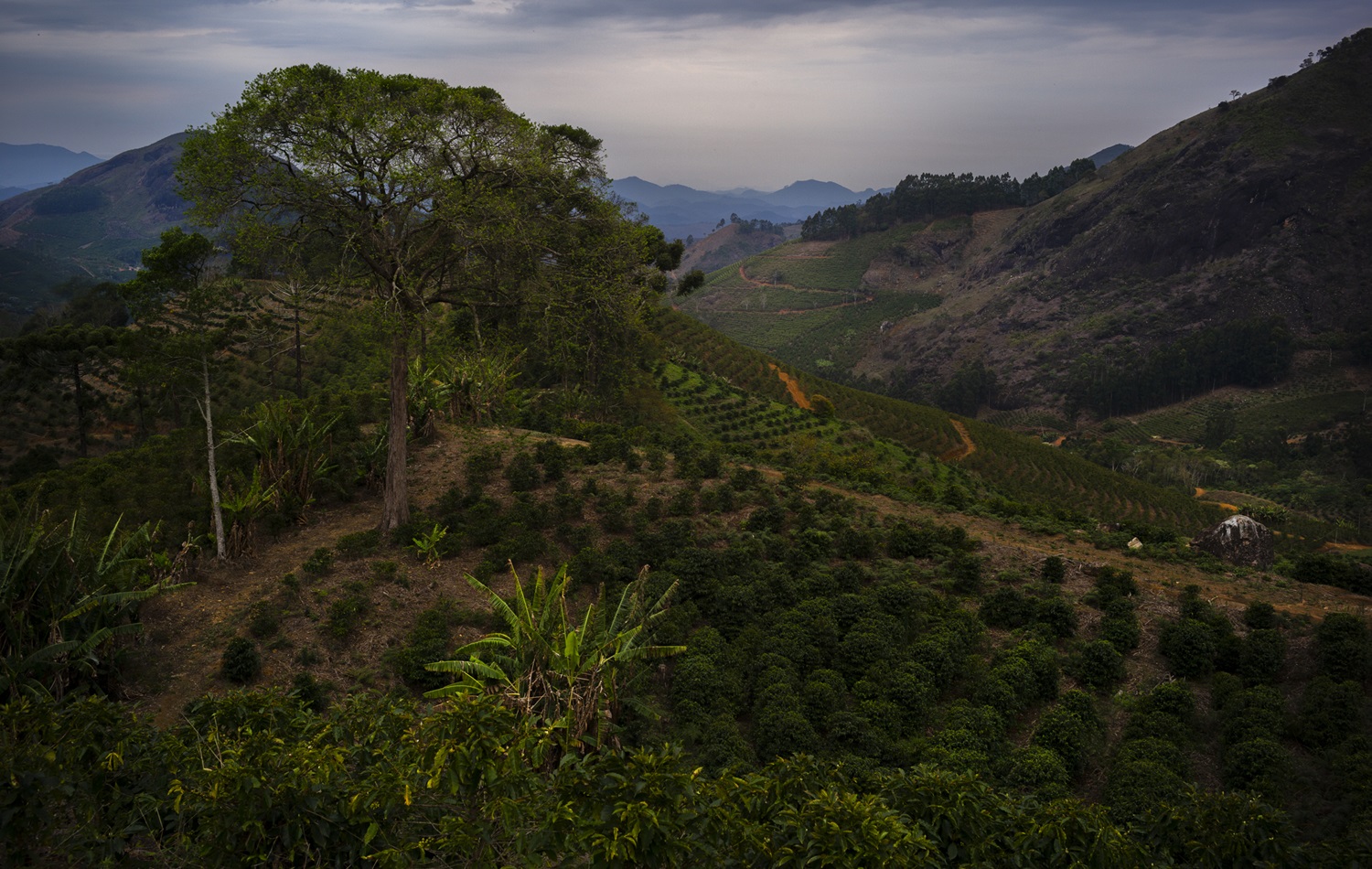
Fazenda Ambiental Fortaleza, Brazil / Photo : Fabrice Leseigneur
4. THE EMERGENCE OF A COMMUNITY
Over the last thirty years, driven by a steadily growing global market, the speciality coffee community has been organising and developing.
For the producers who choose this "industry within an industry", coffee growing is no longer a hardship, nor a means of subsistence, but a choice, driven by passion and conviction.
Farms are taken over by children, others are created by newcomers, and all place the terroir at the heart of their project, as a guarantee of environmental and social sustainability.
The farms are operated with respect for the living environment, under forest or in regeneration to restore biodiversity. The chemical industry is gradually being excluded from this farming model.
Roasters of speciality coffees are paid more for their quality than the market price, which means thata theses companies are economically sustainable.
5. THE ROASTER, THE POINT OF CONTACT BETWEEN PRODUCER AND CONSUMER
In this new pattern of production and consumption, the roaster has a huge responsibility.
It is up to them to select the virtuous producers with whom they work, and to invent a different way of marketing their products, by introducing "transparency marketing" and truth-based communication.
It creates the link between producer and consumer, and maintains a relationship of trust based on quality and total traceability.
To achieve this, they need to be in direct contact with the producers and their working philosophy, which is the very essence of the spirit of speciality coffee.
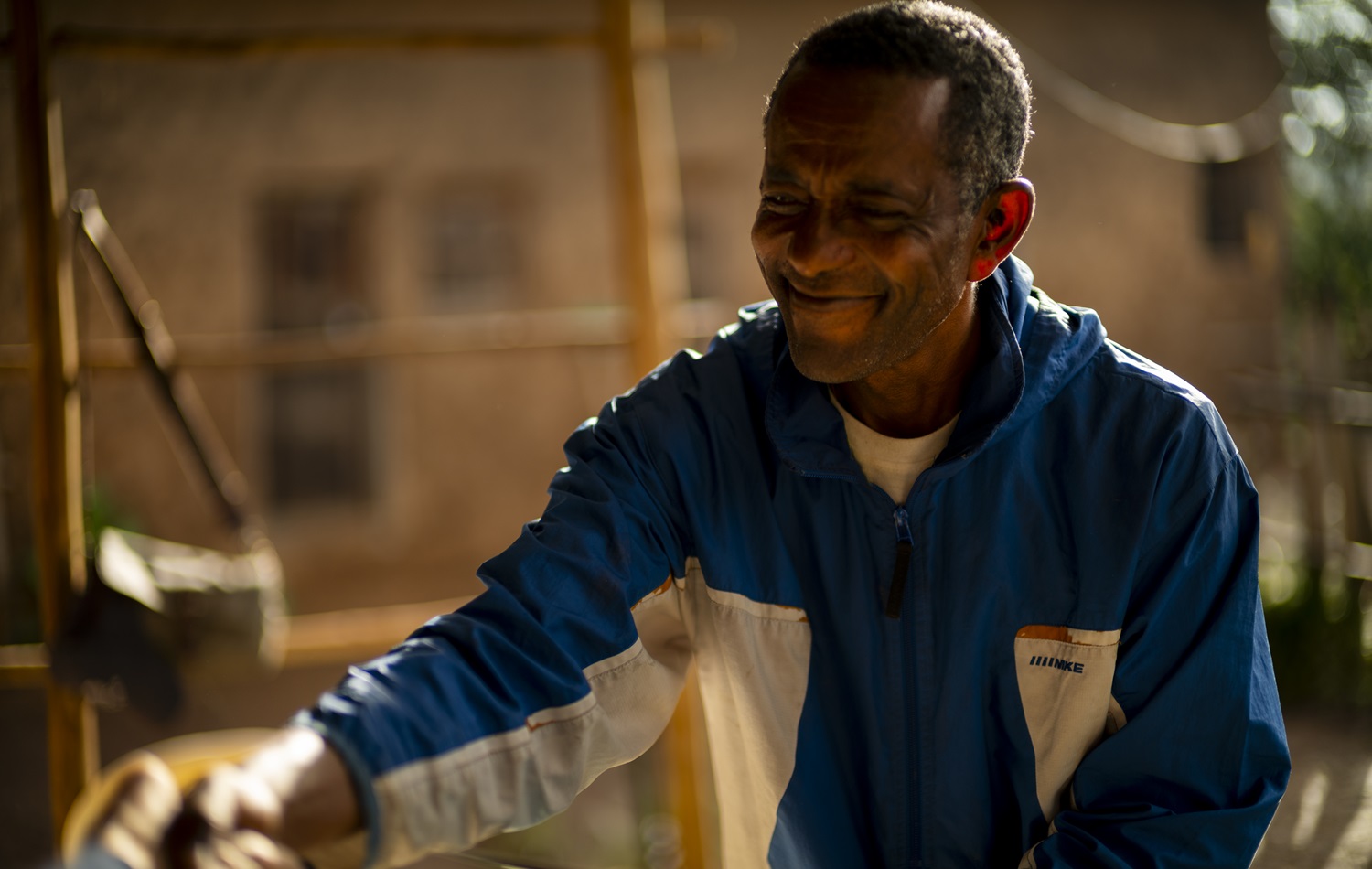
Negussie Tadesse, Tatmara Farm, Ethiopia / Photo : Fabrice Leseigneur
6. PLEASURE AS AN INVESTMENT
In this short producer/roaster/consumer relationship, the consumer also has a responsibility, a huge yet simple responsibility, with multiple repercussions on health, lifestyles, the environment and migration: to find out what they are really buying and to whom they are going to entrust their money, by favouring the shortest route between themselves and the producer.
Coffee has the distinction of being classed as a basic necessity, even though it is not vital, and its consumption is still too quantitative rather than qualitative.
The little extra energy it gives should no longer be a sensory punishment, but a moment of pleasure and well-being, a discovery of the terroir and the aromatic richness of each bean.
Let's be curious, let's emancipate ourselves from the value-destroying supermarkets and the labels that are part of the dominant agri-food system, which is also destructive. Consuming less and consuming better costs no more and is the best possible investment for future generations.
A question of choice
This photographic exhibition is neither a wishful thinking nor a utopia, but a reality.
The speciality coffee community is global, made up of millions of people who have chosen to produce and consume differently.
And what if the foundations of this sector were to act as a trailblazer for a wider food transition?
Christophe Servell
